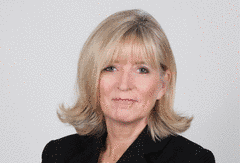
EU Ombudsman Emily O'Reilly is demanding more transparency on so-called expert groups that help frame future EU proposals through, for instance, the publishing of the minutes of meetings as well as positions advanced by individual members.
O'Reilly had launched her own inquiry in May 2014 following broad concerns over how the experts were appointed, the balance between corporate and civil society interests in the groups, and overall transparency. "Making this kind of information public will help ensure expert groups are viewed as legitimate as possible," she said in a statement.
The move represents a direct challenge to the Commission, which has already told the ombudsman it is unwilling to adopt such recommendations. O’Reilly answered that “citizens have a right to know fully how expert advice feeds into EU decision-making.” “This entails knowing what input has been given and by whom, whether by national representatives, industry, civil society or others.”
"It is important to underline that expert groups are not set up in the first place to engage in a debate of a general nature with stakeholders or public opinion," said EU Commission vice-president Frans Timmermans in a formal response last year to O'Reilly's inquiry. She replied that confidentiality of the meetings should only be allowed in exceptional cases "following a majority vote within the group and with the consent of the commission".
Another battleground between O’Reilly and the Commission has been the ombudsman’s demand that the Commission try to establish expert groups that ensure “balanced representation of all relevant interests in each expert group.”
The ombudsman, who has no power to impose her recommendations, has given the Commission an April 30 deadline to explain its response to her strategic inquiry.
Read the full articles in the EU Observer and Politico.
